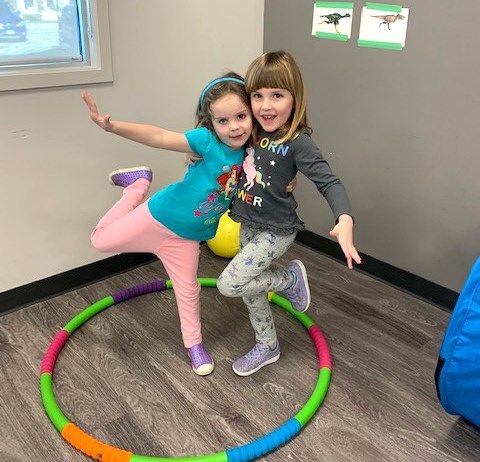Reach Child & Youth Development Society has maintained its programs and connections offering support to families in different ways during the COVID-19 pandemic.
While the Lois E. Jackson Kinsmen Centre for Children in Ladner has been closed for the past month, Reach has been able to shift its programming and services in virtual ways.
“We are doing what we call tele-health sessions, which fulfill three needs for our families, skill building, behaviour reduction and parent support and training,” said marketing coordinator Alison Martin.
According to Reach, parent feedback has been very positive about the current remote services because they appreciate the at-home support by phone or video.
Parents and caregivers have been creative with taking advice and suggestions through virtual sessions and are feeling empowered to help their children.
“Reach has always taken pride in supporting families with children with special needs,” said executive director Renie D’Aquila. “The pandemic has put us to the test, but I’m really proud of our management team, admin team and our staff that have been delivering all of our services remotely.”
Reach Child & Youth Development Society supports families whose children are struggling with any aspect of development including social and emotional behaviors, language, physical challenges and children with diagnosis like autism, FASD and Down Syndrome.
Some important information for the public to access at this time include:
· New Autism Diagnosis Orientation program helps families whose children have recently received an ASD diagnosis receive guidance. Email: [email protected] for more information.
· CHOICES program for children with autism provides behavioural consulting SLP, OT and PT fee for service virtual sessions as well as Music and Social Smarts groups. Email CHOICES coordinator Katie at: [email protected] to learn more.
· On-line mental health resources and apps are suggested (Mindshift, Booster Buddies, Zones of Regulation, anxiety, meditation and relaxation apps). REACH vetted resources are available at https://www.reachchild.org/virtual-resources/. Also visit Reach Society Facebook page -@reachsocietybc - for weekly resources.
· Early Years in Delta Facebook Page - @deltaearlyyears - is an excellent resource for local families. REACH Coordinator Denise delivers virtual story time, links to other development websites, daily theme based activities and Physical Fridays.
D’Aquila said she expects a gradual return to in-person services in early June.
“We had to lay off about 80 staff so we will have to hire back and get that in place, so it will take us time,” she said. “We just finished our policies and procedures around tele-health and have been doing an amazing job delivering those programs and now we are looking at developing new policies and procedures and re-shaping our programs because they won’t be delivered under the same way under the new norm.
“We need all kinds of policies and procedures to ensure our staff our safe and that all of our families are safe, so we will be focussing on that now.”
From a financial perspective, D’Aquila said they are closely monitoring that and do anticipate incurring an agency-wide deficit.
“Reach has had tremendous support from the federal government including accessing the 75 per cent wage increase for non-MCFD contracted programs and we are very grateful to Minister Carla Qualtrough’s office for their assistance,” she said. “Reach is also very grateful to donors who are continuing to help us expand programs like GCT and Fortis BC and to the provincial government for their understanding as we shifted our service delivery structure for contracted programs and to the City of Delta which is embracing and supporting social services in an unprecedented manner.”
D’Aquila said as Reach navigates this ‘new normal’ and returns to in-person connections, some of their programs and services may remain virtual.
“The exciting part of this is the lessons learned here,” she said. “Staff are talking about how in the new normal and the new service delivery model what components of the tele-health can we hold onto. Counselling services I think is one thing. Clearly there is an opportunity to increase our efficiency and make our dollars go even further so we can support more kids here.”



